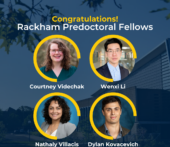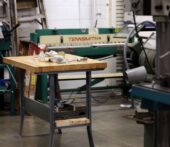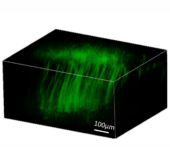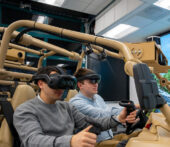
04/09/2024
This competetive award aims to encourage students early in their courses of study to pursue graduate studies in research areas of interest to the DoD.

This competetive award aims to encourage students early in their courses of study to pursue graduate studies in research areas of interest to the DoD.

Grace Haller is a first-year master’s student in ME. Here, she blogs about her transition from undergrad to grad school through the University’s Sequential Undergraduate/Graduate Studies (SUGS) program.

For the 2024-2025 academic year, four mechanical engineering (ME) students have been selected for this fellowship.

Real-world walking data informs machine learning model.

It looks like the same mechanism that breaks up airplane contrails might be at play in forming the clumps of hydrogen gas that ring the remnant of supernova 1987A.

The ME Undergraduate Machine Shop team has received the University of Michigan’s Distinguished Diversity Leaders Award for their work to improve accessibility in the shop, which also yielded a new framework for evaluating industry standard equipment setups.

The organization underscored her work in manufacturing network control and human-robot interaction. Tilbury’s smart-manufacturing work includes digital twins, managing the health of manufacturing systems and reconfiguring such systems. The announcement also named human-robot teaming.

Kim, an undergraduate junior in Mechanical Engineering, has received this award for her efforts to promote DEI within the U-M Solar Car Team.

Kenn Oldham and his lab have received an R01 grant from the National Institute of Health to develop a new endoscopic microscope for neuron imaging capable of penetrating beneath the surface of organ tissue and at cellular resolutions.

The U.S. Army has has reached a new five-year agreement of up to $100 million with U-M’s Automotive Research Center to boost work on autonomous vehicle technologies.